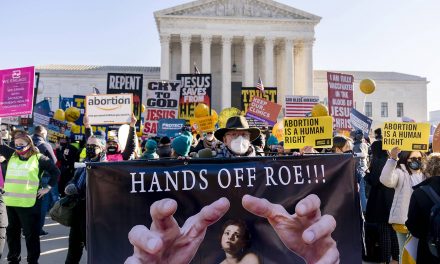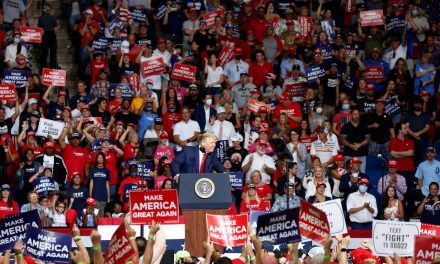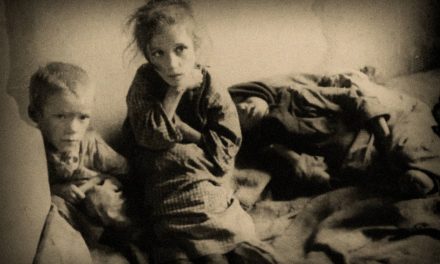
2010 to 2020 was a contradictory decade that will confound future historians with a simple question: how did America go from Obama to Trump?
Lin-Manuel Miranda was touring his award-winning musical, In the Heights, to his parents’ homeland of Puerto Rico. Donald Trump was awarding first prize on his reality TV show, The Apprentice, to a corporate lawyer turned mobile cupcake entrepreneur. The year was 2010 and, in the decade that followed, these two hustlers from New York with fiercely devoted followings would come to represent the two faces of America.
Miranda produced Hamilton, a musical mega-hit that used hip-hop, jazz, blues, rap, R&B and Broadway recast America’s founding fathers as people of color in a hymn to the immigrant nation. Trump smashed and grabbed his way into the political class, and the White House, with a nationalist, nativist message that promised to build a border wall to keep Mexicans out and make America great (white) again.
Open, inclusive and endlessly curious, Miranda personified a progressive sensibility and social consciousness around gender, race and the environment, largely associated with America’s booming coastal cities. Trump, reveling in ignorance and narcissism, embodied a populist rage against change, political correctness and liberal elites, gaining traction in small towns and rural areas that felt left behind.
As 2019 drew to a close, America’s existential crisis was the yawning, ever-growing chasm between these two tribes. With an assist from gerrymandering, blue states got bluer and red states got redder; Republicans became more white and more male while Democrats diversified. The parties were more polarized on issues such as abortion and the climate crisis than anyone could remember.
Words such as “unprecedented” still had some life in them just over a decade ago when Barack Obama, on the verge of his signature healthcare reform known as Obamacare, hosted a poetry jam at the White House. Fresh from Broadway success, Miranda tried out a song “about the life of somebody who embodies hip-hop – treasury secretary Alexander Hamilton”. Far-fetched as the idea seemed, Hamilton took flight as theatre’s hottest ticket, featuring songs that caught on with school children across the country.
The musical that cast black actors as George Washington, Thomas Jefferson and other slave-owning founding fathers also became synonymous with the Obama years. First lady Michelle Obama called it “the best piece of art in any form that I have ever seen in my life” and recently tweeted that Miranda “painted as honest a portrait of our country as I’ve ever seen.”
Obama performed a freestyle rap with Miranda in the White House Rose Garden. And introducing him at Hamilton showcase in March 2016, he declared: “In the character of Hamilton, a striving immigrant who escaped poverty, made his way to the New World, climbed to the top by sheer force of will and pluck and determination, Lin-Manuel saw something of his own family, and every immigrant family.”
Hamilton made its off-Broadway debut at New York’s Public Theater in February 2015. Four months later and three miles away, Trump rode down an escalator at Trump Tower to declare his candidacy for US president, declaring: “When Mexico sends its people, they’re not sending their best … They’re bringing drugs. They’re bringing crime. They’re rapists. And some, I assume, are good people.”
It was the pivot point, the moment that ensured this would be a broken-backed, contradictory decade that would confound future historians with a simple question: how did America go from Obama, its first black president, to Trump, champion of racist conspiracy theories about his predecessor’s birthplace?
Halifu Osumare, professor emerita in the department of African American and African studies at University of California, Davis, said: “It really shows the extreme schizophrenia of this country and how race is still very much a part of the original sin to portray itself in the world as the beacon of democracy that is always looking at the inalienable rights of the individual while at the same time reinforcing racial difference and hierarchy. I think that Barack Obama was such a rupture in the master narrative of the white, wealthy male being the only possible leader for this country, the original sin of America erupted with Donald Trump and we had permission for the violent racist past to re-emerge.”
Osumare, a black popular culture scholar, points to the white nationalist march in Charlottesville, Virginia, that erupted in deadly violence in 2017 as an example of this re-emergence. “We were in denial during the Obama administration about it because it seemed that the election of the first black president meant that we were moving into a post-racial society. But we saw very quickly the backlash where that underbelly of racism re-emerged with Donald Trump.”
The anti-Obama backlash had been evident in the stirrings of the conservative Tea Party movement. Leah Greenberg and Ezra Levin were congressional staffers at the time. They would later become progressive organizers, co-founders of the group Indivisible and authors of the book We Are Indivisible: A Blueprint for Democracy After Trump.
Greenberg said of the Tea Party: “We had a lot of personal experience with them and what was really clear was that it was a white identity grievance movement. Sure, they had signs that were about the debt or the deficit but it was code for their sense that somewhere some undeserving other was getting something that their tax dollars were going for. [Trump] threw out the dog whistles and just used a bullhorn and it turned out that enough people within the Republican party were into that that he was able to seize the nomination and seize control of the party.”
Wielding his bullhorn, Trump also seized control of the White House in November 2016. It was a moment of reckoning for America, forcing white liberals to confront a storied racism (see The Case for Reparations by Ta-Nehisi Coates) that many had believed would inevitably wither away.
There were other forces in play. The opioid crisis. The highest suicide rate since the second world war. Declining life expectancy. Automation and factory closures ripping the hearts out of communities. Cavernous inequality, pitting the top 1% against the bottom 99%, a natural conclusion of Ronald Reagan’s “trickle down” economics.
“The Obama presidency was much less radical than it needed to be in order to halt the trends which led us to Trump. That doesn’t mean that it’s all Obama’s fault; most of it is not his fault,” said Timothy Snyder, a history professor at Yale University, said. “But I think the eight years of Obama were in large measure a kind of self-congratulatory illusion instead of the very tough remaking of politics that probably had to happen if we weren’t going to get a Trump.”
The 2008 financial crisis, which saw vast sums of money spent to rescue Wall Street, produced aftershocks that found populist expression in outsiders such as 2016 and 2020 Democratic presidential candidate Bernie Sanders, targeting corporate power from the left, and Trump, scapegoating immigrants and elites from the right. They reshaped politics and put the centrism of Bill Clinton and company in retreat.
Jamie Raskin, a Democratic congressman from Maryland, said: “The Democratic party moved left and the Republican party moved right and we have a contest between dueling populisms now in America. We’ve got an authoritarian, racially tinged populism, and we’ve got a progressive economic and social populism, and that’s the battle for the soul of America. The question is, will the centre hold and where is the centre? Is the centre somewhere between these two populisms or is it inside one of them?”
But along with Trump’s gaudy escalator ride, something else happened in June 2015 that gave hope to Raskin and millions of others. The US supreme court legalized same-sex marriage nationwide. It was a win for the America of Hamilton. Not even Trump, wildly popular with Christian evangelicals, has suggested trying to overturn the decision.
Raskin recalls: “When I first ran for state senate in 2006, one of my planks was marriage equality. I’ll never forget, when I made my announcement speech, a woman came up to me and said, ‘Jamie, great speech but one thing, you’ve got to take out all that stuff in there about gay marriage because it’s never going to happen and even the gay candidates don’t talk about it, and it makes you sound like you’re really extreme. like you’re not in the political centre.’ That was when I had an epiphany and I said, ‘Thank you for telling me because it makes me realise it’s not my goal to be in the political centre … I think that progressive impulse has really taken over the Democratic party. The country has become far more progressive on a whole bunch of issues that were considered taboo in 2010.”
This was reflected in protest movements that have rattled old hierarchies: Occupy Wall Street, Black Lives Matter, Extinction Rebellion. Not long after Trump, who had bragged about groping women without their consent, was elected to the White House, the #MeToo movement caught fire, holding Hollywood mogul Harvey Weinstein and other predatory men to account and demanding to know why victims had gone unheard for so long.
David Remnick, editor of the New Yorker magazine, notes: “We are a contradictory people, and just one example is that at a time when a proven misogynist is the president, a #MeToo phenomenon happens and moves us forward.”
#MeToo thrived on social media. But so too did disinformation, fake news, invasions of privacy, downright lies and Russian propaganda. Perhaps the biggest winners of the decade were Facebook and Google, which defied regulation, raked in billions of dollars and changed the way we live now. Big tech enabled and incentivized people to pick fights, strike the snarkiest pose and flaunt the worst of themselves, often behind a cloak of anonymity. The giants became as influential as nations but without UN obligations.
These echo chambers were reinforced by cable news networks that seemed to occupy alternative universes, offering radically different chyrons and commentaries on everything from Robert Mueller’s Russia investigation to judge Brett Kavanaugh’s supreme court confirmation to House Democrats’ impeachment inquiry into Trump over his alleged attempt to bribe Ukraine to investigate one of Trump’s key political opponents.
The reality TV president exploited these post-truth fractures to deny science and withdraw America from the Paris climate accords, which may prove the most consequential decision of the decade. With this and a thousand other egregious acts, he could always rely on support from Fox News, which perfected its model during the Obama years then seemingly tethered itself to Trump’s White House.
David Brock, founder and chairman of Media Matters for America, a progressive media watchdog, said: “Fox has given the conservative side a whole set of counter-facts and a whole different reality that they can live in that has destroyed the consensus in the country, destroyed the notion that we are operating from the same set of facts and then kind of arguing how to interpret them… I don’t think we’d be here in the moment we’re in without Fox.”
Social media plays an auxiliary role, Brock argues. “You can definitely see that the producers at Fox are paying attention to these far-right extreme websites and social media outlets: Breitbart, the Daily Caller, 4chan, 8chan and Reddit. Of course, the Trump campaign was very adept at exploiting all that and they got a leg up on the Democrats digitally in 2016 and they still have it.”
Niall Ferguson, an author, historian and senior fellow at the Hoover Institution thinktank at Stanford University in Palo Alto, California, has a different emphasis. “Cable news has been around a while; that wasn’t new,” he argues. “What was new was Facebook and Google’s dominance of news consumption through news feed and search and, of course, the advent of targeted political advertising.
“I strongly believe that without social media – and certainly be more precise and say Facebook – Trump wouldn’t have won. That was much more important than Fox. I think the big tech companies totally changed the structure of the public sphere and it’s still the case that many people don’t get that.”
The rise of social media played a big part in the collapse of America’s local newspapers, devouring advertising revenue and creating “news deserts.” Facebook and other social media are “unquestionably” responsible for accelerating political tribalization and a breakdown of a shared reality.
“It’s not just polarization; it’s atomisation now. The most striking difference between 2016 and 2012 at the national aggregate level was the depressed African American turnout. That didn’t happen just by accident. That was the core objective of the Trump social media campaign and it worked,” said Ferguson. “This is the big difference that this decade will be remembered for, and also the fact that during this decade the big tech companies basically were unrestrained by any regulation and were able to take the implications of financing online content with ads to the illogical reductio ad absurdum of having Russians post political content anonymously on American social media.”
America’s “cold civil war,” as veteran journalist Carl Bernstein characterises it, has been described as a more profound threat to national security than any external foe. Combined with Trump’s manta of “America first,” which shakes the trust of old allies in Nato and beyond, the US is widely seen to be ending the decade in a far weaker position than where it began. Ferguson published Colossus: The Rise and Fall of the American Empire in 2004, soon after George W. Bush’s disastrous war in Iraq – still arguably a greater blow to America’s standing, and to trust in leaders, than anything Trump has said, done or tweeted.
“The real story of the last 10 years has been that there are two ways of managing imperial decline,” the British-born historian sayid. “You could do it a kind of refined, law professor way as Obama did, giving lectures and then taking actions like not intervening in Syria. Or you can just walk away with complete insouciance as Trump has. I think it’s really actually two flavors of the same ice cream.”
The past decade witnessed the deaths of former president George HW Bush and Senator John McCain and, some argue, the Republican party as they knew it when it became consumed by a personality cult. The bipartisan unity that followed the 11 September 2001 terrorist attacks now seems a relic from a different era. Back in 2010, Leon Panetta was the director of the CIA, planning the raid that would kill Osama Bin Laden the following year. He said: “Those who wanted to undermine America and our democracy and create distrust have been very successful. Whether it’s the terrorists of 9/11 or whether it’s Putin and Russia, I think the objective of creating a divided America that began to lack trust in the institutions of our democracy: that was their goal and, if you look at America today, they’ve largely succeeded.”
The past decade it is ending with a looming, pit-of-the-stomach sense of dread, of a potentially violent election, of future conflict with China, of apocalyptic global heating for many Americans. In the short term, the November 2020 election will determine whether Trump was a four-year aberration, last time he did lose the popular vote by nearly three million after all, or the crass messenger of a more profound shift in direction.
“Oceans rise, empires fall,” sings King George III in Hamilton. Will future historians see in this decade the decline of the American empire?
Panetta said: “I think we’re very much at a crossroads where there are really two paths. One is that we really could be an America in renaissance, if we could get our act together and deal with these challenges. Or we could be an America in decline. And right now, my sense is that we’re are clearly moving on the wrong path of an America in decline.”
Dаvіd Smіth
Originally published on The Guardian as The decade that shook America
Help deliver the independent journalism that the world needs, make a contribution of support to The Guardian.














